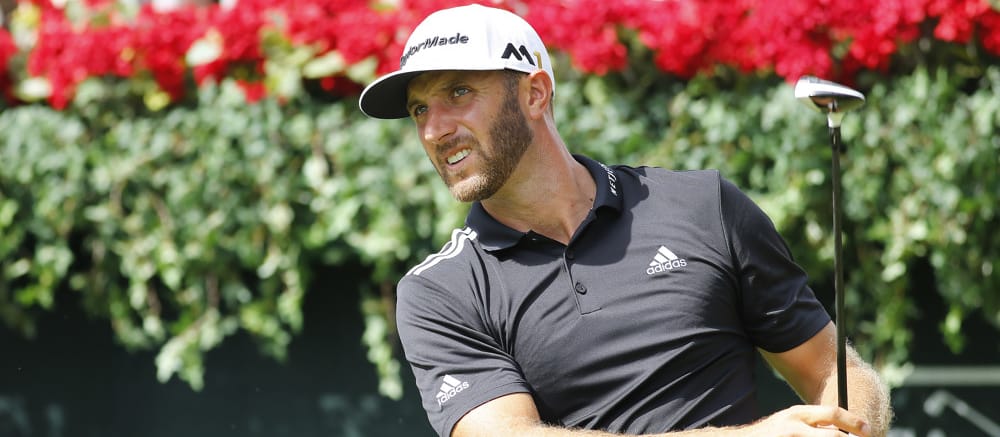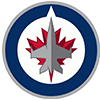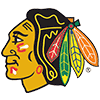Daily Fantasy Sports keep growing and growing. While it seems good old-fashioned season-long leagues among friends are still a huge component of fantasy play in the major team sports, it's the opposite in golf: #DFS play dominates.
And it's a beautiful thing.
You know how when you hit a bad shot, and you take a Mulligan, and life is better?
That's kind of how daily fantasy golf works. How annoying is it to be woefully behind in your season-long league with months to go, and months to hear smack from the other guys?
That's one of the beauties of daily fantasy golf. You're always getting another chance, another fresh start. A new game starts every week with each new tournament. Heck, DraftKings and FanDuel have taken it even a few steps further, allowing you to forget about an awful start with weekend games, or even single-round games.
Before we get in Draft 101, as we do every year, we want to point out a potentially big change in strategy right at the top. This is the first season we will see the full effects of the PGA Tour's condensed season. This season, there will be 10 -- TEN! -- fall events, from the lid-lifting Greenbrier to the pre-Thanksgiving RSM Classic. In recent years, there were only seven events. So now roughly 25 percent of the season will take place before the winter break. There will be 41 tournaments in the 2019-20 regular season, including the two-man Zurich Classic but not
Daily Fantasy Sports keep growing and growing. While it seems good old-fashioned season-long leagues among friends are still a huge component of fantasy play in the major team sports, it's the opposite in golf: #DFS play dominates.
And it's a beautiful thing.
You know how when you hit a bad shot, and you take a Mulligan, and life is better?
That's kind of how daily fantasy golf works. How annoying is it to be woefully behind in your season-long league with months to go, and months to hear smack from the other guys?
That's one of the beauties of daily fantasy golf. You're always getting another chance, another fresh start. A new game starts every week with each new tournament. Heck, DraftKings and FanDuel have taken it even a few steps further, allowing you to forget about an awful start with weekend games, or even single-round games.
Before we get in Draft 101, as we do every year, we want to point out a potentially big change in strategy right at the top. This is the first season we will see the full effects of the PGA Tour's condensed season. This season, there will be 10 -- TEN! -- fall events, from the lid-lifting Greenbrier to the pre-Thanksgiving RSM Classic. In recent years, there were only seven events. So now roughly 25 percent of the season will take place before the winter break. There will be 41 tournaments in the 2019-20 regular season, including the two-man Zurich Classic but not including opposite-field events. We believe this will mean more top names will play in the fall events -- otherwise, they are simply giving away too many FedEx Cup points. Maybe the Brooks Koepkas of the world won't have to alter their schedules too much (though Koepka already announced that he has added the Shriners to his fall schedule), but a lot of guys will have to play more. This could minimize some lesser guys, such as Cameron Champ, who was the darling of the 2018 fall season only to get a reality check when facing stiff competition after the New Year. Of course, it's impossible to predict who will play and how often, but this might make you think twice about drafting one of the longer shots you were hoping could deliver in the fall.
We do like our daily fantasy golf, don't we? But we like it more when we do well. Here, then, are some ways to do well.
Back to School
As with all fantasy sports, let's start with doing your homework. Watch golf, read about golf. And learn the rules of the major fantasy sports sites: DraftKings, FanDuel, Yahoo and PrizePicks. They're largely the same, but there are some nuances – and they price the golfers differently.
A quick review of the basics: You pick six golfers who fit into a salary cap, and every golfer has a dollar value. The golfers get points based on how they score on the course. It's more like the Modified Stableford Scoring System than stroke play. You get points added or taken away depending on what your guys do. But whereas in real golf a birdie is just as good as a bogey is bad, it's not that way in daily play.
Birdies are worth more than bogeys are costly. Same for eagles vs. double bogeys (or worse). Each of the DFS sites scores a bit differently, but the gist is the same: They all reward riskier play. A golfer who totals, say, 8 birdies, 3 bogeys and 7 pars will net you more points than 5 birdies, 0 bogeys and 13 pars. Both are 5-under, but the first one is better in the #DFS universe.
There are bonuses for players winning or finishing high on the leaderboard or for various streaks, such as consecutive birdies, bogey-free rounds, etc. Again, each site is slightly different.
First and Foremost
The two things that we like to focus on more than anything else when picking a lineup are current form and course history.
If a guy is playing well heading into a tournament, great. If not, it's risky to assume he'll find his form just when you need him to. Sometimes, course history trumps current form, but in that case, it's got to be a heckuva course history. Very rarely do guys continue to play courses they are terrible at unless it's a major or another big event (or the swag is too good to pass up).
Secondarily, each week when making the RotoWire/DraftKings Value Picks, we examine the course to see what stats will be critical to success. Does it favor the longer hitters? Or is accurate iron play paramount? And scrambling and putting and so forth. Sometimes it seems you can never drill down far enough: Some guys play better on, say, Pete Dye-designed courses. Some do better on the West Coast Swing because certain grasses are native to that part of the country. You don't have to be an agronomist (but it wouldn't hurt).
The First Cut Is the Deepest
And the second one hurts even more. Most of the time, if one of your six misses the cut, it will wreck your chances (Hello, weekend and single-round play!). If a golfer gets to the weekend and blows up, it's still going to be better for you than not getting there. And there's always the chance he can get hot. You might be able to withstand one MC in a small game, but not one with hundreds or thousands of players -- unless maybe if your five other guys finish in the top-10. And if they do, please pick for us next week.
Lineup Construction
There are differing thoughts on GPP (guaranteed prize pool) vs. cash games. Basically, the GPPs are the bigger games with the better players, fewer winners and …far bigger payouts. Cash games pay out more players but the winnings are far less. Those are generalities. Breaking down all the different types of games even further, here's a good place to look: https://www.rotowire.com/golf/article.php?id=32864
There are different schools of thought how to attack GPP and cash. Our thinking is that much if not most of the strategy overlaps between the two games. In GPP, you'll want to anticipate golfers who are not highly owned to try to separate yourself from the masses. Of course, if you think a guy will do well or even win, going in a different direction just because you anticipate high ownership, well, that doesn't make much sense.
Regardless, there are different ways to construct a lineup. You can pick a couple of high-priced stars, which also means you have to take flyers on two or more scrubs. Or, you can try for an even distribution of six middle-of-the-road guys. A lot of it comes down to personal preference, or maybe the specifics of what you see in the field in a given week.
Isn't That Odd?
The odds for a golfer to win a tournament will usually mirror his DFS prices. But every week there are a number of prices really out of whack, with a golfer looking way overpriced or an incredible bargain. How do you know that? You follow golf. Sometimes it's pretty obvious. For a second opinion, check the odds at golfodds.com or elsewhere. Those oddsmakers are pretty smart dudes. Look for the discrepancies and take advantage of them.
Belly Up to the … App?
Twitter is like a bunch of golf fans sitting around in a bar talking golf. Only there are a lot more of them (and they're all talking at once). Twitter is a great news source, and a great barometer. You learn about injuries and other important factors. And you might get a handle on ownership levels. There are sites that track/predict that sort of stuff. And, like RotoWire, many sites have experts making expert picks. Some are free; most are subscription-based. Also, follow the actual golfers on social media. You might get an injury tip or something similar.
A Chalk Outline
Guessing ownership is far from an exact science, and risky. Some experienced golf gamers can do it. You might want to fade a guy you think will do well because you think he will be highly owned. Try not to overthink things -- don't double-cross yourself. But if all the evidence points to a guy being highly owned, and you can find a comparable player with less predicted ownership or even at a cheaper price, then steer clear of the chalk.
Flavor of the Month
At various points during the season, we see a guy come out of nowhere to have a good week, or even a good few weeks. And Twitter goes crazy. Chillax! Just like the best guys go through down periods, scrubs rise from the ashes every now and then. Most often, they will return from whence they came in short order. And these guys tend to do better in weaker fields, when so many stars are taking the week off. Very often, the DFS sites will overreact and you'll see that reflected in their prices. It's a sucker play. Sure, one or two guys come out of nowhere every year. But that's few and far between. And there's a reason the Next Big Thing was on the Web.com Tour last year.
Smile for the Birdie
Birdie or better percentage. Birdie to bogey ratio. Bogey avoidance. These are stats the PGA Tour tracks. As we discussed earlier, not all 5-unders are created equally. Golfers who take more chances and get more birdies (and bogeys) are good for your lineup (though maybe not your blood pressure). For the most part, the best golfers on the course will be the best golfers in DFS scoring. But there are some small differences, and that's all it takes to win or lose your game.
Stats All Folks
There are many other stats to consider, and they differ depending on the course. But there is one kind of golfer who never goes out of style: the kind who can get the ball on the green. Greens in regulation. Strokes gained: approach. Strokes gained: tee to green. More times than not, that guy will be a solid pick. He may not be able to win because he can't putt, but he'll be around for the weekend and maybe a whole lot more. Every lineup needs good foot soldiers.
Round and Round We Go
There's weekend play and there's second-, third- and fourth-round play, too. The prices can swing wildly from what they initially were on Monday, and the strategy changes, too. It's still golf, but if you're asking someone to have only two good rounds, or even one, the chances he can do it are greater. It seems risk-taking would and should be rampant here. Take a flyer on, say, Denny McCarthy, and hope you nail his maybe one good round of the week. Another consideration: It's hard to follow up a great round with another great round. Maybe you can at Kapalua, where life is like one big 59-Watch, but most often no. With the narrow focal point of one round, even a tee time could be an important tool. Bad weather coming in? Grab a guy with an early start. There are so many variables.
Final Thoughts
We said it earlier, we'll say it again. The easiest thing is, if you pick the golfers who do well in real golf, they will be good in fantasy golf, too. Don't overthink things. Go with your gut. Don't double-cross yourself.
This article appears in RotoWire's 2019-20 Fantasy Golf Draft Kit.







































